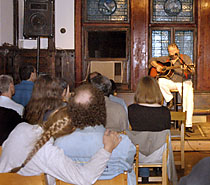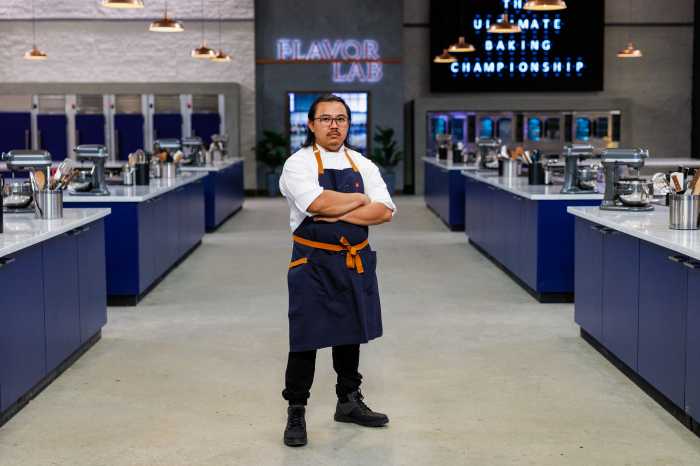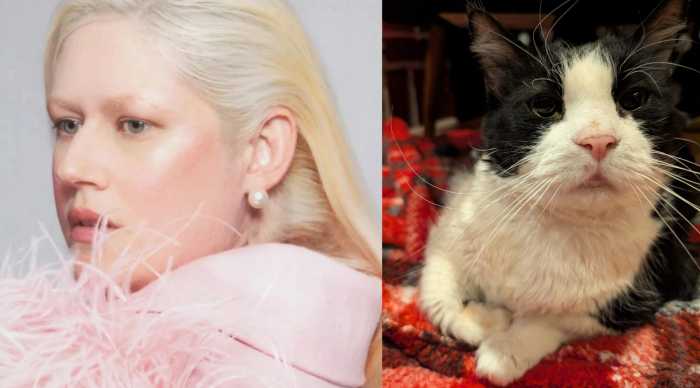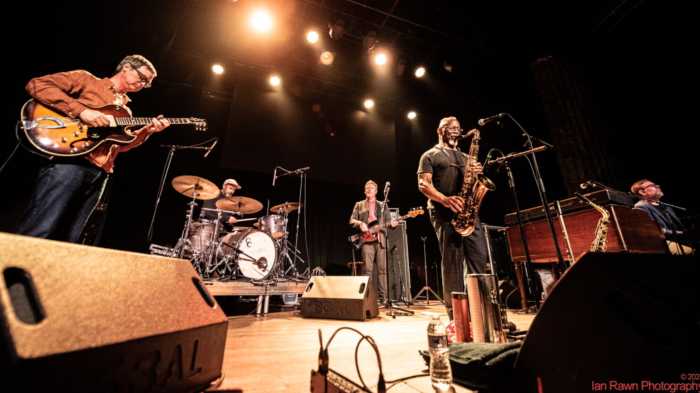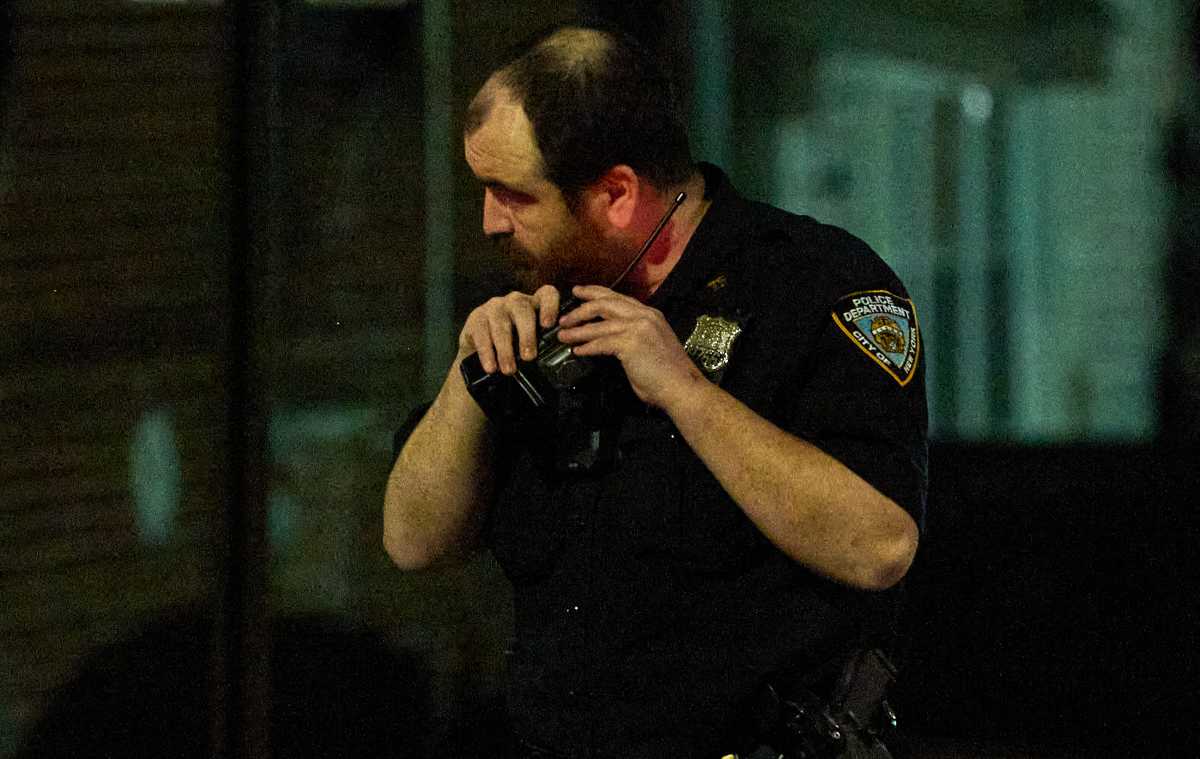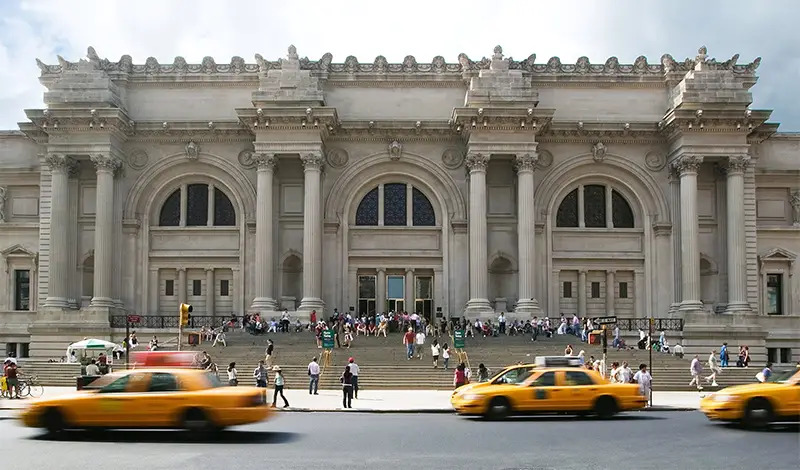One of Park Slope’s best-kept secrets is
celebrating its 30th birthday the best way it knows how – with
music and friends.
On a recent Thursday afternoon, Good Coffeehouse Music Parlor
co-curator James Reams arrived sweating, out of breath, and obviously
overbooked for an interview in Lower Manhattan. Yet he was still
smiling. He had just left his job as a special needs middle school
teacher on the Lower East Side and was preparing to leave two
hours later with his band, the Barnstormers, for Kentucky, to
play at the Vinegrove Bluegrass Festival.
While Reams’ days and nights are spent teaching learning-disabled
students and playing bluegrass music with his nationally acclaimed
band, in what spare time is left, he co-curates the lineup at
the Good Coffeehouse Music Parlor (GCMP).
"We call it the home of acoustic roots," said Reams,
48, of Park Slope. "It’s different than the singer-songwriters
at folk music venues today; we have artists who play Cuban, African
and American roots-based music and are very into culture."
The Good Coffeehouse Music Parlor is located inside the Brooklyn
Society for Ethical Culture in Park Slope, which holds about
100 people. You won’t find a band trying to play above a liquor-fueled
din at GCMP; only complimentary coffee and tea are poured and
a photographer was recently shushed by an audience member for
having a noisy shutter on his digital camera.
The most important thing that the GCMP has is music and that
is all that matters to co-curators Reams and Tina Aridas.
"At the coffeehouse, it’s about an appreciation and joy
of the music and a respect for the performers," said fellow
Park Sloper Aridas, 51. "It’s a place where performers can
offer their music to an audience that is really listening."
Since 1974, performers have been getting together to play at
the Good Coffeehouse, but Aridas says there is no official written
history of the venue. It was founded informally by a group of
folk musicians who played there. Anne Kleaysen later worked as
curator for more than 15 years until Reams took over in 1999.
Reams began playing at the coffeehouse in 1985 and in the early
1990s, Reams and the Barnstormers came together. Reams says that
Kleaysen asked for his input on rejuvenating the coffeehouse
after he and the band packed the house on many occasions. In
1999, Kleaysen left and Reams became curator.
At that time there was no "parlor" in its name. For
the 30th anniversary, Reams, Aridas and the other coffeehouse
committee members introduced "parlor" to differentiate
themselves from places like Starbucks.
"People don’t understand the concept of coffeehouse music
anymore," Aridas said. "Performers shouldn’t have to
play over bar chatter."
To kick off the 30th anniversary season properly, on Sept. 17-18,
the GCMP hosted the seventh annual Park Slope Bluegrass and Old-Time
Jamboree, a day and a half of workshops, jamming and concerts
of traditional American music including a performance by Reams
and the Barnstormers.
Then, on Oct. 1, seasoned musician Paul Geremia shared his acoustic
blues guitar, rack harmonica and vocal talent as part of the
Traveling Troubadour Series, a new series Reams and Ian Zack
created for the Good Coffeehouse’s 30th anniversary. Geremia,
a legend from Rhode Island, has toured full-time for the past
38 years.
Upcoming shows include Jose Conde and his band Ola Fresca, a
blend of Cuban-roots and American funk and rock music on Oct.
15. A salsa lesson will start the first set.
Corey Harris, a native of Denver, Colo., will share his Delta-style
bottleneck playing and singing while exploring the African and
African-American roots of the blues on Oct. 22, as the Traveling
Troubadour Series continues.
One of Reams’ favorite memories of GCMP is of a performance by
the late Tom Doherty, a renowned Irish musician, and his daughter
Maureen, in the mid-’90s. He also fondly recalled a performance
by flat-picking guitarist David Grier.
"I love music," Reams said. "It’s nice to see
a world class musician in that room."
Aridas, on the other hand, praises "emerging" performers
like Patrick Wichter who pass through the coffeehouse’s doors.
"It’s wonderful to see the growth of a performer,"
Aridas said. "We hope he’ll always come back to the GCMP."
In 1997, "Traditions, New Spirits & Holy Ground,"
a compilation album to highlight some of the local talent that
had performed at the coffeehouse in previous years, was released.
The GCMP committee labors many hours to plan the parlor’s scheduled
events, which is why Reams and Aridas cannot do it alone. A committee
of about six helps with the evening activities from buying bags
of ice and welcoming performers to managing the sound and setting
up chairs.
Everyone involved in the GCMP is in it for a love of the music.
Volunteers sometimes even reach into their own pockets for additional
costs. The admission collected at the door is split only between
the performer and the Ethical Culture society.
"Our goal is a good musical experience for both the performer
and the audience," Aridas said.
For 30 years, the GCMP has been providing just that. A mix of
emerging and established local performers, as well as nationally
touring artists, the GCMP helps many musicians on their way.
For some it is a chance to truly be heard. For others it is a
ticket to stardom and for others it is a stop along the way.
For all, it is a musical experience unlike any other.
"I’m really lucky," Reams said. "I’ve played at
Lincoln Center and the Bottom Line, but one of my favorite places
to play is that room. It really has a magical feel. It’s a real
listening room."
The Good Coffeehouse Music Parlor is
located at 53 Prospect Park West at Second Street in Park Slope.
All shows begin at 8 pm. There is a $10 donation at the door.
Traveling Troubadour Series admission is $15. Coffee and tea
are free. For a schedule of events, call (718) 768-2972 or visit
www.bsec.org.


